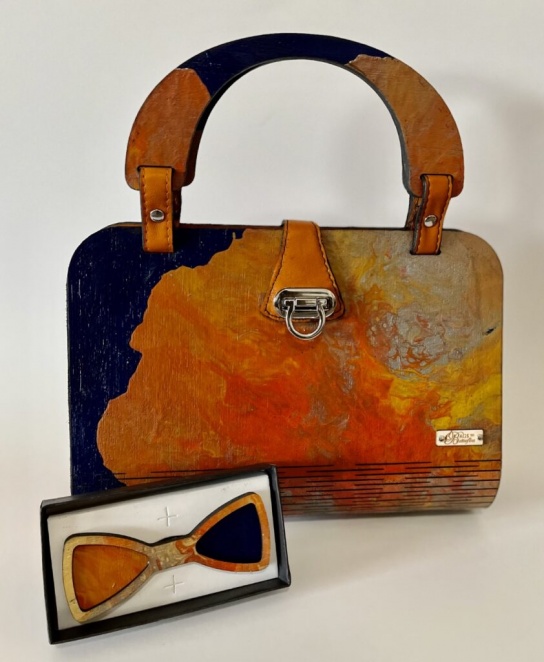
Each summer many students scramble for the chance to gain work experience through an internship, happy to get even one company or business to bite. But for Samantha Lang, a junior in the Ford School of Public Policy, the summer was rich with opportunities. Through her involvement with The Detroit Neighborhood Entrepreneurs Project she worked with Detroit small businesses like Fit4Life, Sister Pie, Pink Poodle Dress Lounge and Bags to Butterflies, all the while supporting and strengthening the local community.
The Detroit Neighborhood Entrepreneurs Project connects small businesses with University of Michigan students and staff to help solve the issues they face involving law, business, finance and more. Since its founding, the project has helped 423 businesses, 95% of which are minority-owned.
One of their important endeavors is the Impact Studio for Local Business, which tasks student teams with addressing issues such as point of sale, design and customer retention.
Students are able to bring knowledge from previous studies in business, graphic design, law and finance, and receive job-specific training from faculty members about the real-world issues businesses are facing. They’re taught about brand identity, packaging and procurement, point of sale technology systems and other topics that require them to synthesize their theoretical in-class learning to find solutions with real business consequences.
Program manager Aaron Jackson says that faculty expertise is another strong benefit that the program offers to these small businesses.
“The students provide such creativity, initiative and ambition, but then you also add in the faculty’s expertise from their years of working in that background,” Jackson says. “They’re able to add a different component and see things that the students cannot always see. When you combine these two things you create a program that the businesses were seeing so much benefit from.”
Lang worked on the point of sale team, helping businesses refine and perfect their transactions for optimized profits. “A lot of the tasks we did were researching and recommending different point of sale systems, depending on the specific business needs of the client, and then implementing those point of sale systems. Any questions that needed to be resolved about technology, they came to us.”
Not only was Lang able to learn more about the business world, she was also able to find clarity in her career development. “I wish this internship was longer because I absolutely loved it,” she says. “I thought this was a really good way of introducing me to the world of business, and seeing a way in which you can use business to promote social equity, because that’s the whole purpose of the internship, which is to help small businesses maximize their revenue, profit, things like that, but also help them connect with the community more.”
When it comes to small businesses, the community is more than just a customer base. They are neighbors and friends, and many of these businesses prioritize giving back to their communities in some way. And in the reverse, the community supports these businesses through difficult times.
Fit4Life, another business Lang worked with, is a gym that provides personalized training classes. During the pandemic, Fit4Life was able to overcome the challenges of lockdowns and mask mandates due to their dedicated customers. “They weren’t able to do in-person training,” Lang explains, “so they did a lot of virtual classes, and a lot of her customers are very loyal. They stayed with her throughout the pandemic, and she was able to bring on more customers as well.”
By focusing on neighborhood entrepreneurship, the program is able to promote the resilience of these neighborhoods against things like pandemics and economic downturns. “When you have strong small businesses that have been staples in your community, it helps build camaraderie,” Jackson says. “And it’s not only access to things you need inside of the community, but you also have an opportunity to rely on each other and support each other through hard times.”
For Lang, working with small businesses presented a great opportunity to apply her skills to a real business case while also helping the community. And in exchange for the opportunity to exercise these skills, businesses are receiving assistance in areas that they may not have a lot of knowledge of.

Bags to Butterflies, a Detroit-based social enterprise with a mission to empower formerly incarcerated women with transitional employment and resources, is one of the many community-minded organizations that the program partners with. All the bags and other merchandise are made by women recently released from prison, many of whom were so young when they were incarcerated that they had never had a job before. They provide these women with support and assistance in building skills that will transfer to future employment opportunities.
Michelle Smart, owner of Bags to Butterflies, says that the program has been amazingly helpful to her and her business.
“I’m so glad that I connected with DNEP because the program is amazing for entrepreneurs like myself who need extra hands and assistance in areas that we don’t have expertise in,” Smart says. “The program has been so beneficial to us as an organization by bringing individuals into our space and helping us to do things that we wouldn’t normally be able to accomplish.”
As the program wraps up for the summer, Jackson says they’re already looking into improvements to implement next year. Internally, the project is looking to expand the U-M schools and faculty involved with the program, therefore opening it up to even more students and disciplines.
Externally, the project is working to continue to appropriately identify the ever-changing needs of their partnering small businesses in order to serve them best. “We’re looking to become more intentional about how this work impacts the revitalization of the city and more specifically, these neighborhoods in these commercial corridors,” Jackson says. The program hopes to continue to be attentive to the needs of the businesses they help, and provide work that is closely aligned with those needs.
Jackson stresses that there are many ways to get involved with The Detroit Neighborhood Entrepreneurs Project after the internship. Students can take classes which supplement their material with real-world application of skills with a Detroit small business. There are also accounting jobs that students can apply for, where they will learn accounting skills relating to small businesses and then apply those skills to provide businesses with free accounting services.
This all culminates into meaningful change for a business, which in turn benefits the community as a whole. Michelle Smart says: “Everyone has been so awesome and just so skilled and knowledgeable. We’ve learned so much and we appreciate all of the support that we’ve received.”
By: Melina Schaefer
Source: Special to Michigan News
